News
Investment Scams Rising Through Fake Celebrity Endorsements
Financial fraud through celebrity endorsement is becoming a primary concern as one in six firms o...
 Explore More
Explore More
News
Financial Watchdogs Flags Crypto Mixer Stoking as a Potential Risk For Money Laundering
Cryptocurrencies are highly criticized by financial watchdogs and governments for potential risk ...
 Explore More
Explore More
News
Amendments to ‘Trust Property Control Act’ May Still Require Revisions
FISA (Fiduciary Institute of Southern Africa) and other notable trust law experts have expressed ...
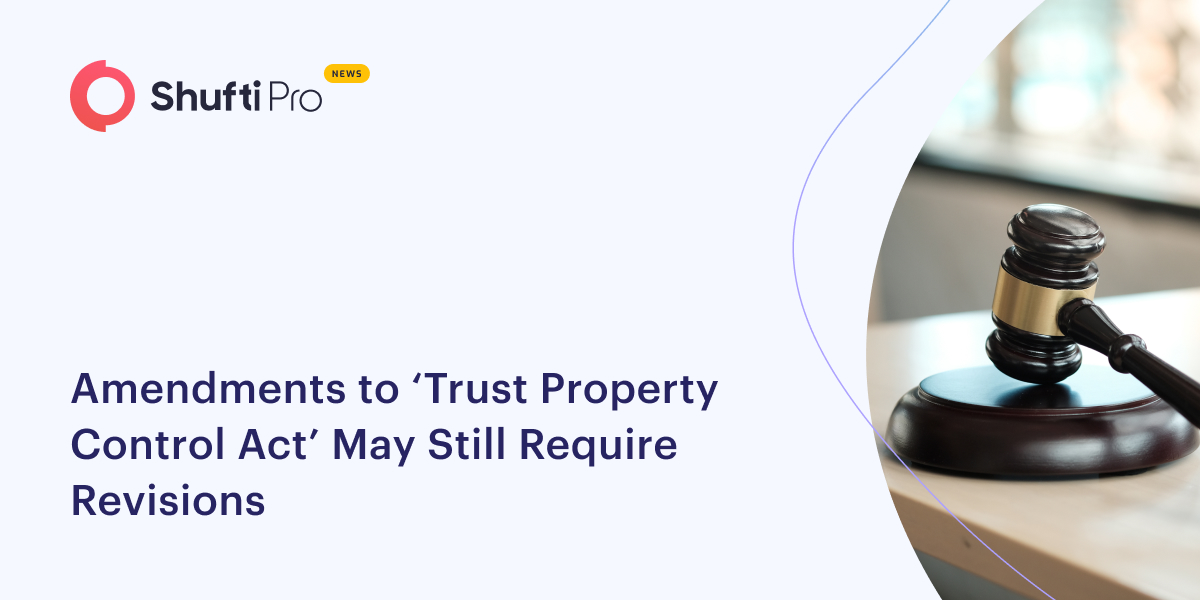 Explore More
Explore More
News
Australian Defense Department Hit by Ransomware Attack
Australian Defence Department has been hit by a ransomware attack. No information about former or...
 Explore More
Explore More
News
Falklands and Gibraltar Still on Spanish ‘Tax Haven’ List, Says Report
The official Spanish Gazette published a list which consists of Falklands/Malvinas and Gibraltar ...
 Explore More
Explore More
News
South Africa Issues Stricter Guidelines for Crypto Traders
To prevent the surging cases of financial crime, South Africa has introduced rigid regulations fo...
 Explore More
Explore More
News
Kinahan Cartel Under Pressure as European Union Places UAE on ‘Blacklist’
The Kinahan Cartel is under great pressure after the European Union (EU) places the UAE on the ‘b...
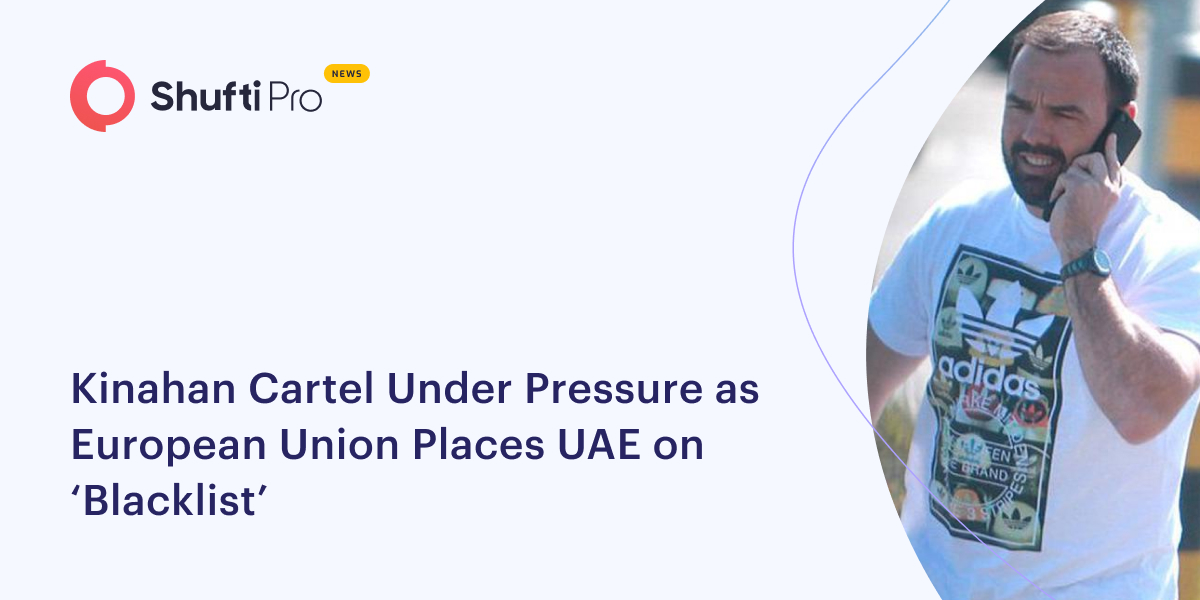 Explore More
Explore More
News
Lawmakers Approve Enablers Act Bill to Expand AML Reporting Requirements
A group of lawmakers have approved the revision of America’s money laundering laws after 20 years...
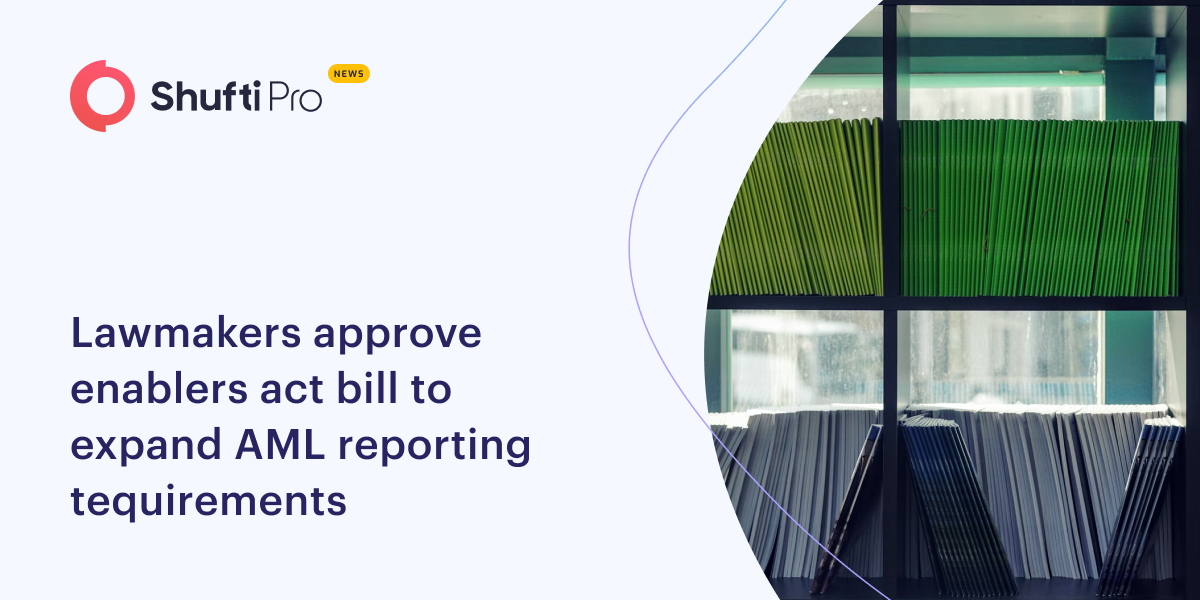 Explore More
Explore More
News
Ransomware attacks rise as criminals target remote working
Ransomware attacks are getting bigger and bolder at a time where many organisations are implement...
 Explore More
Explore More
News
Jamaica Passes a New Bill to Counter Money Laundering
The Senate has approved the Company (Amendment) Act 2023, which will enable Jamaica to meet inter...
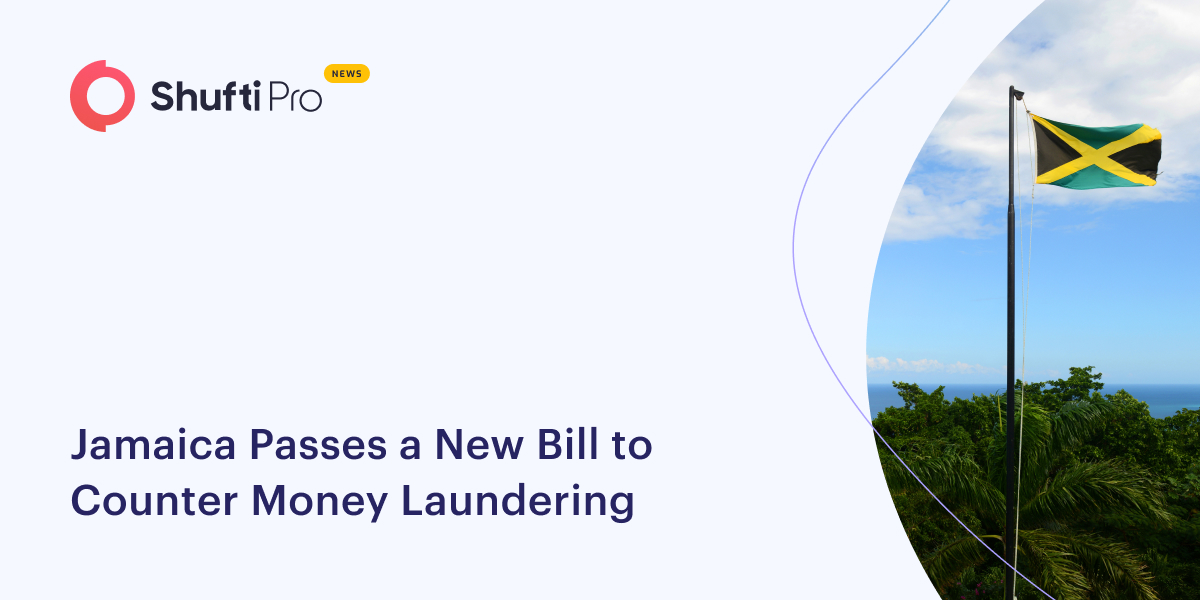 Explore More
Explore More
News
Sri Lankan AMLO Fines a Bank and Two Finance Firms for Non-Compliance
Approximately two million rupees worth of fines were imposed on three financial institutions in S...
 Explore More
Explore More
News
Hong Kong’s New Crypto Regulations may Attract Web3 Firms Back
Hong Kong’s new proposed crypto regulation received Huobi Global’s, a Chinese crypto platform, pl...
 Explore More
Explore More
News
Black Friday Shoppers Alert: Digital Scam Victims Lose an Average of £1,000 Each
Black Friday shoppers have been advised to strengthen their cybersecurity as NFIB revealed that v...
 Explore More
Explore More
News
US Senator Warns ‘a Run on Crypto’ May Need Federal Bailout
Elizabeth Warren, US Senator and a longtime bitcoin skeptic has shared her views about the upside...
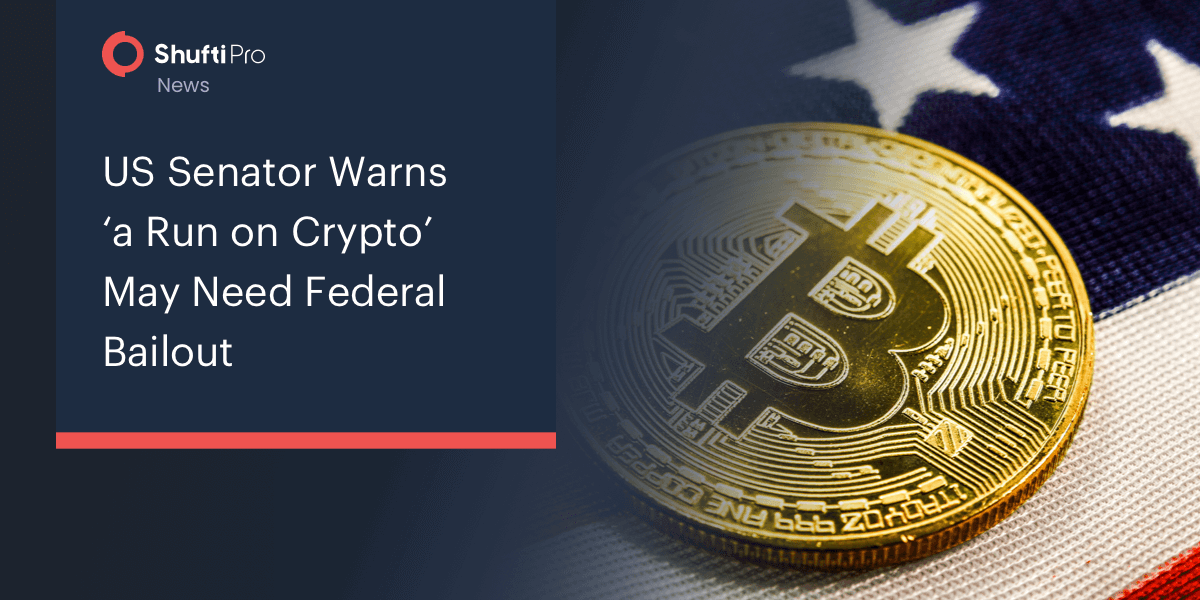 Explore More
Explore More
News
Job Seekers Face Concerns of Identity Theft Through Fake Employment Scams
Fake employment advertisements defrauded many job seekers with theft of money and personal detail...
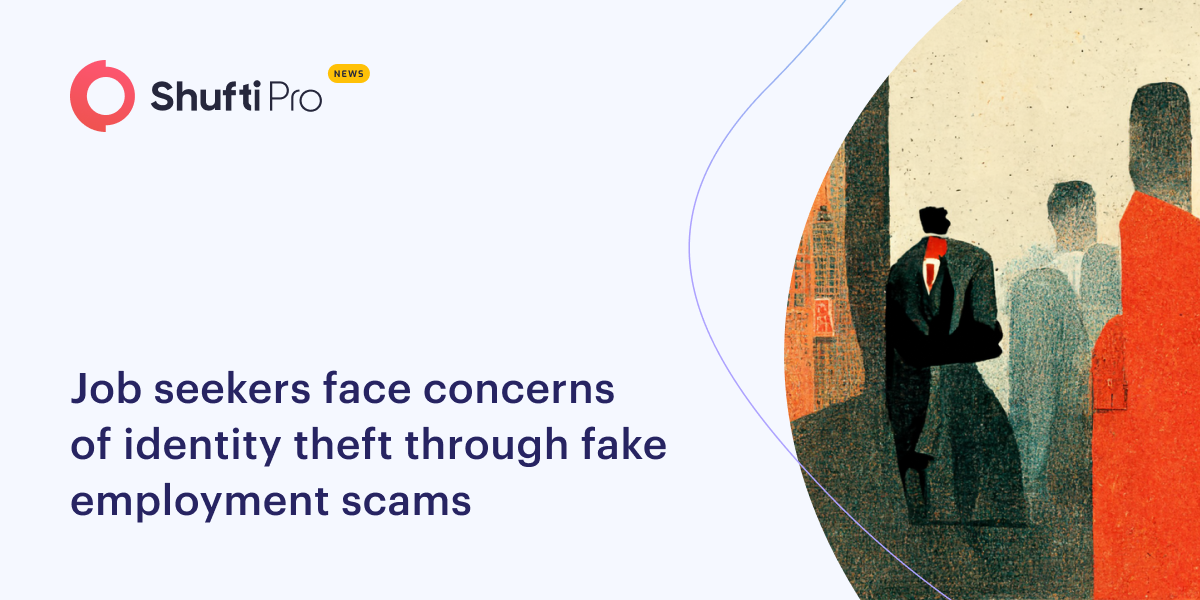 Explore More
Explore More
News
Online Gaming Used by Criminals to Groom Minors into Drug Mules
Criminal networks are now applying the use of online video game, Fortnite, to groom minors around...
 Explore More
Explore More
News
GBA to Organize Two-day Training Workshop for Addressing AML and CFT Concerns
GBA concluded a workshop on AML and terrorist financing concerns to avoid any possible threats of...
 Explore More
Explore More
News
UKGC Revoked IMME’s Licence for AML Non-compliance
Licence of IMME was revoked by the UK Gambling Commission for not complying with the Anti-Money L...
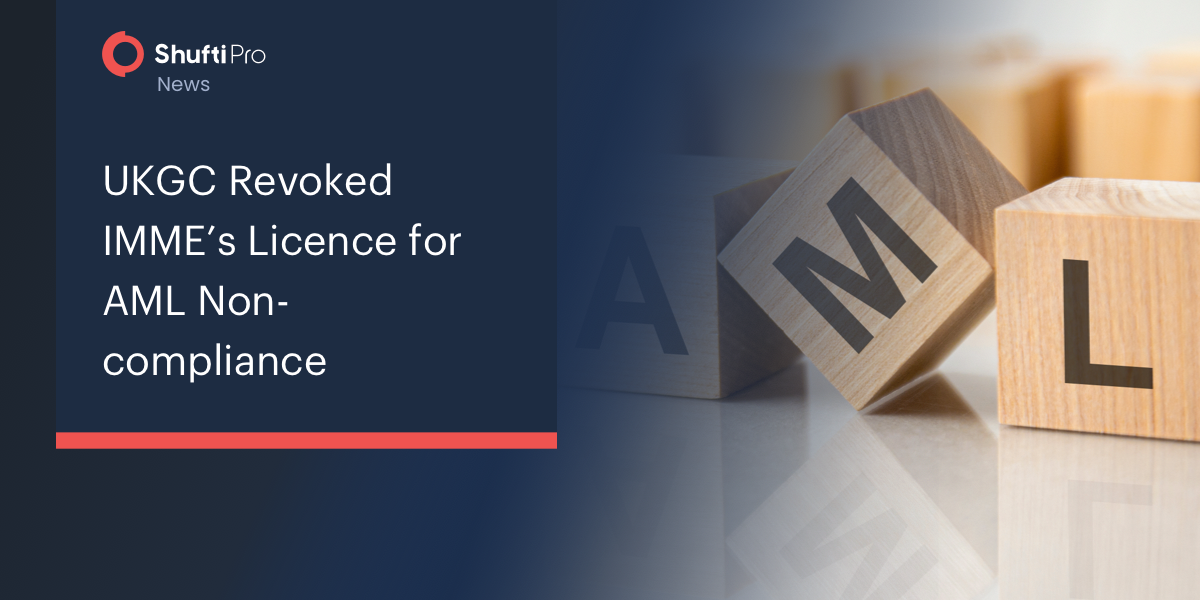 Explore More
Explore More
News
UK to Mandate the Declaration of Crypto Holdings in Self-Assessment Tax Return Forms
The UK government is looking to mandate the declaration of crypto holding in Self Assessment tax ...
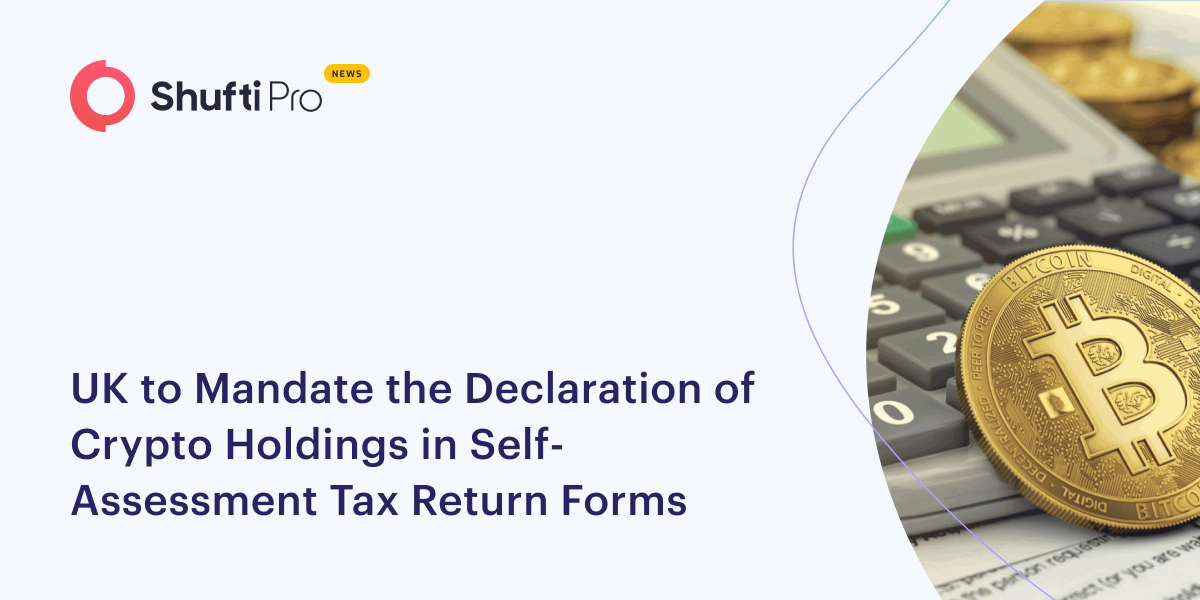 Explore More
Explore More
News
China Warns of Money Laundering Risks Arising from NFTs
China has warned of the financial risks associated with non-fungible tokens (NFTs) as three indus...
 Explore More
Explore More
News
FinCEN Alerts FIs of Sanction Evasion by Russian Entities Implicated in U.S. Commercial Property Investments
FinCEN alerted all the Financial Institutions warning about the risk of investment from sanctione...
 Explore More
Explore More
News
FIU Recovers $284K From Two Companies Suspected of Money Laundering and Tax Evasion
The Financial Intelligence Unit of Liberia (FIUL) has recovered more than $284,000 from two compa...
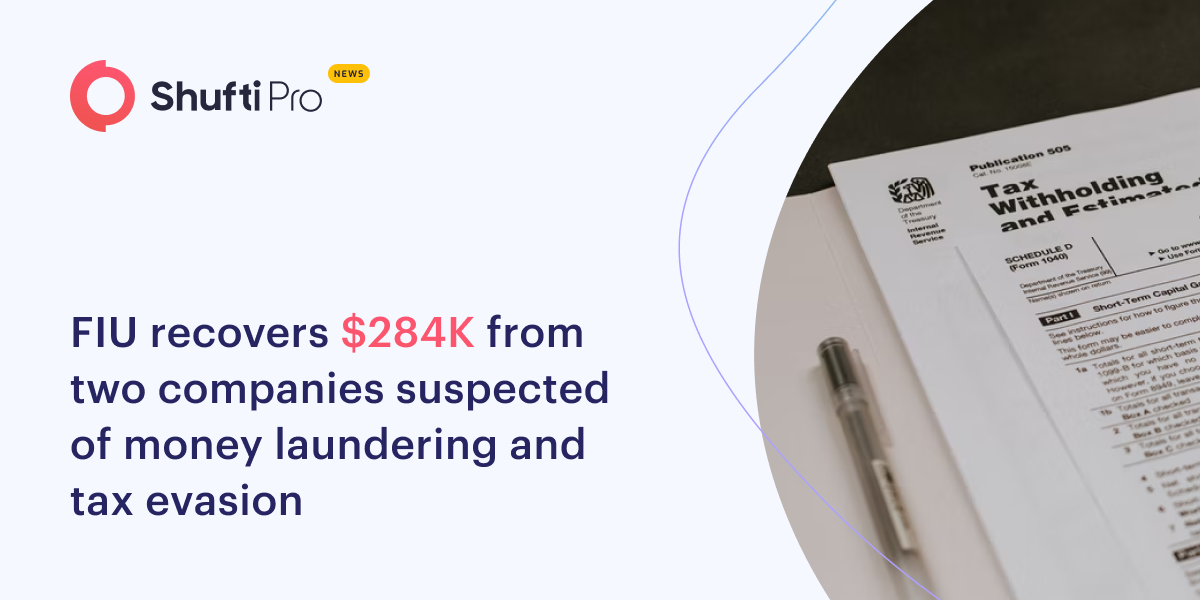 Explore More
Explore More
News
Department of Justice Charges Russian Oligarch with Violating US Sanctions
The Justice Department reportedly charged a Russian oligarch with violating US sanctions and reve...
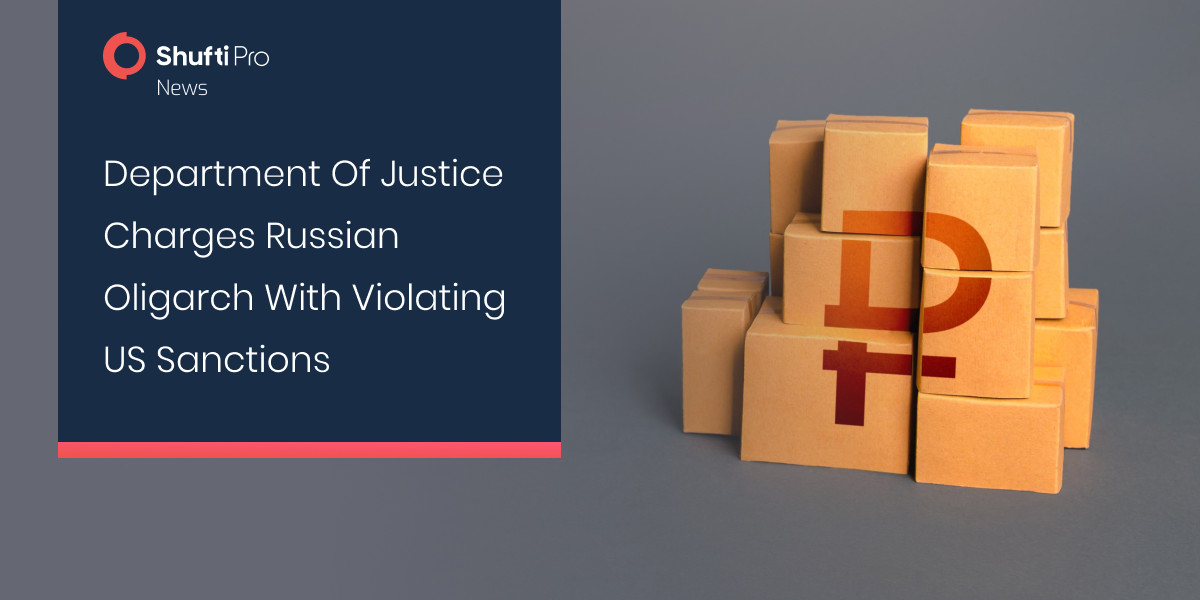 Explore More
Explore More
News
NAB Chief Urges Government to Reconsider Fines for Large Data Breaches
The Chief of NAB Ross McEwan has urged the government that penalties for data breaches charged as...
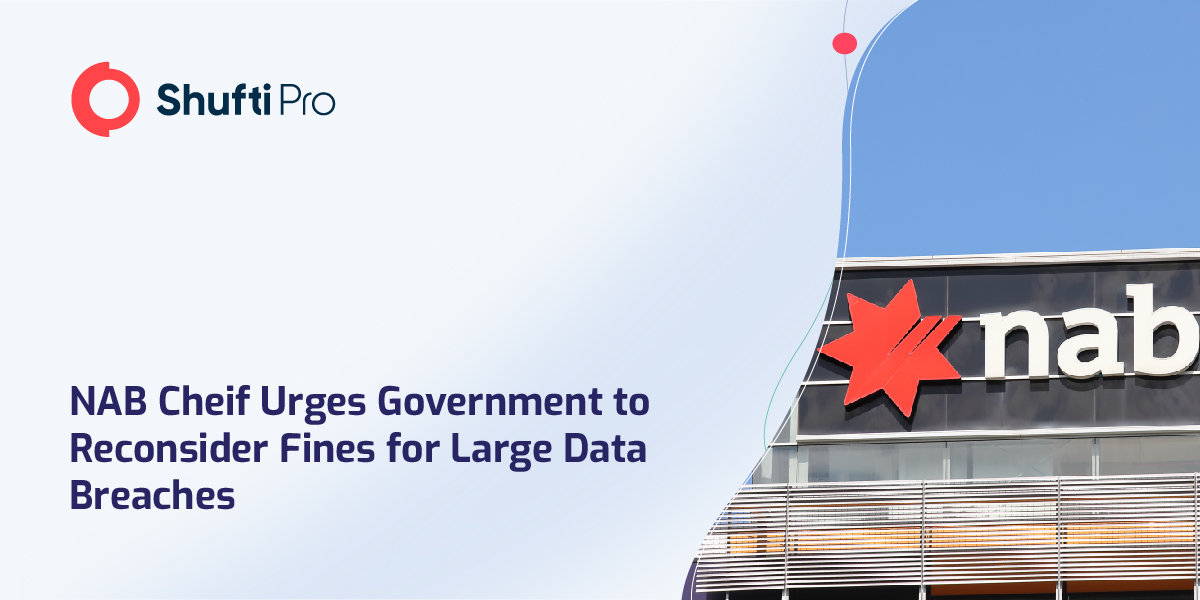 Explore More
Explore More
News
Philippines’ Anti-Money Laundering Counsel Increases AML Measures for Casino Junkets
The Philippines’ Anti-Money Laundering Counsel (AMLC) has stated that it is currently impro...
 Explore More
Explore More
News
Money Laundering Watchdog Fines HSBC for AML Violations
HSBC Malta has been fined €82,000 by Financial Intelligence Analysis Unit (FIAU) for AML violatio...
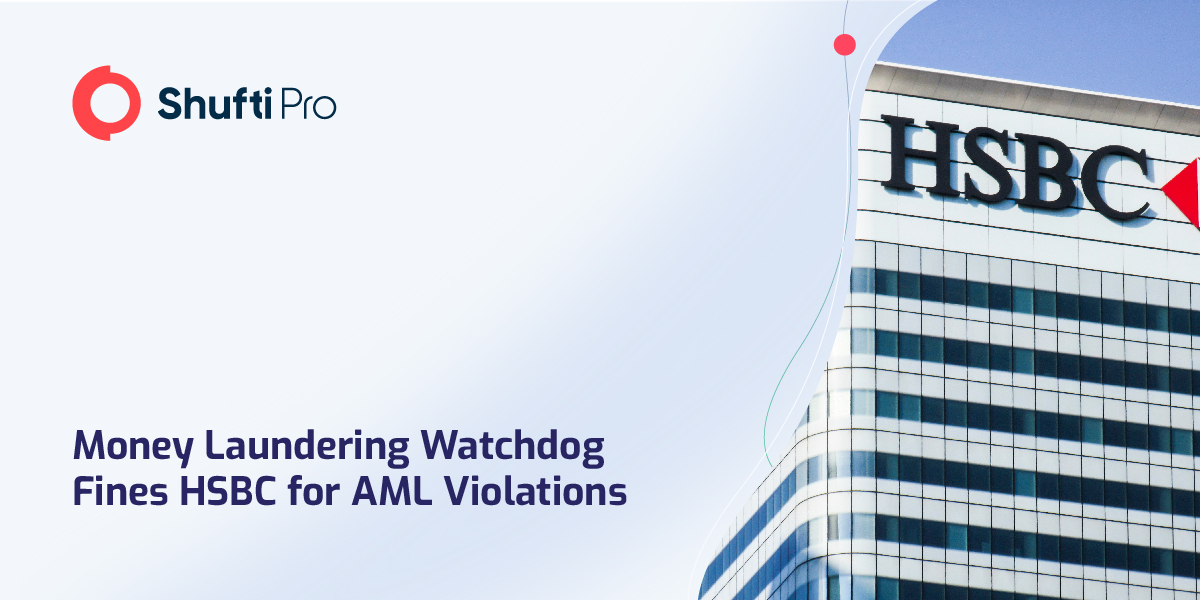 Explore More
Explore More
News
Chinese Officials to Face Scrutiny Over their Financial Affairs in Hong Kong
Hong Kong’s banks will take extra measures to monitor transactions by Chinese politically connect...
 Explore More
Explore More
News
Singapore Now Requires Developers to Comply with New AML/TF Regulations
The Singaporean government will implement a new anti-money laundering and anti-terrorism financin...
 Explore More
Explore More
News
Ontario’s Casinos Need to Strengthen Efforts to Curb Money Laundering
According to Auditor General Bonnie Lysyk, Ontario’s casinos need to strengthen efforts in order ...
 Explore More
Explore More
News
AML investigation results in NZ police freezing $140 million
Police have collected $140 million from the Canton Business Corporation and its owner Alexander V...
 Explore More
Explore More
News
FATF to Reassess Morocco’s AML Measures for Possible Removal from Gray List
The Financial Action Task Force (FATF) is all ready to reevaluate Morocco’s Anti Money Laundering...
 Explore More
Explore More
News
MAS Rejects License Applications of 100 Crypto Exchanges for Ineffective CDD Protocols
Over 100 companies were either turned down or had to withdraw their applications for a license to...
 Explore More
Explore More
News
Philippines Extends Registration Period for Amended AML Regulations
The Anti-Money Laundering Council in the Philippines has revisited the guidelines of the Anti-mon...
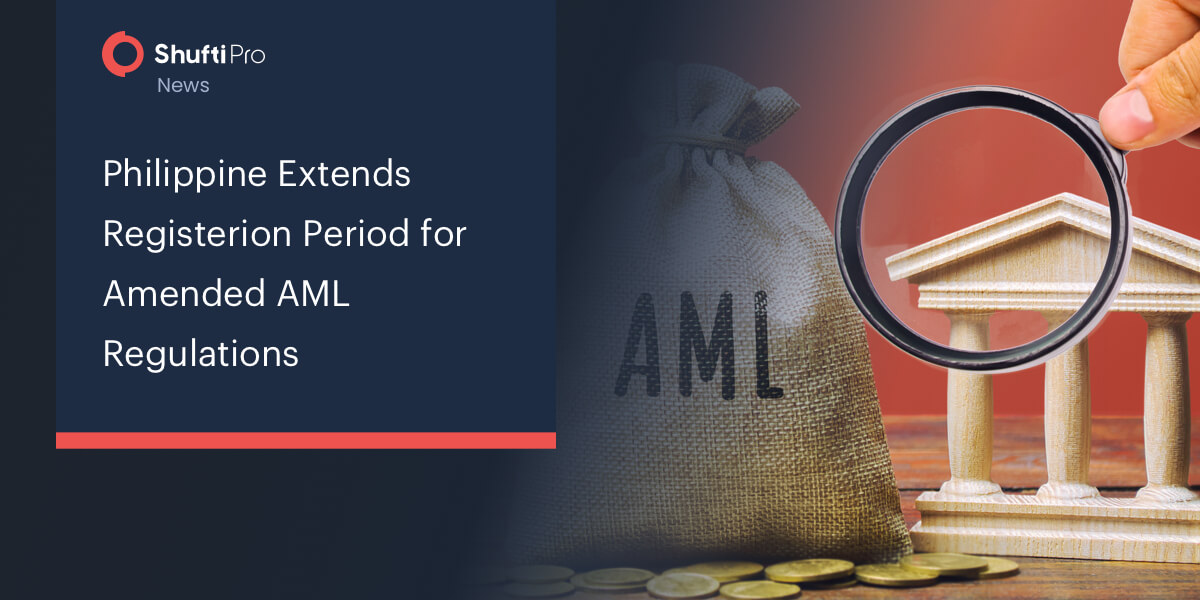 Explore More
Explore More
News
UK watchdogs launch ad-scam alert system to control online fraud
The United Kingdom Advertising Standards Authority (ASA) and the Internet Advertising Office (IAB...
 Explore More
Explore More
News
Banks Warned about Cryptocurrency Risk Exposure by FinCEN Director
During a virtual anti-money laundering conference by ACAMS in Las Vegas earlier this week, FinCEN...
 Explore More
Explore More
News
Investment Bank Fined by FCA for Failing with Due Diligence Requirements
An Investment Bank in London, Sapien Captial, has been penalised by the financial regulator, Fina...
 Explore More
Explore More
News
Swiss Prosecutor Identifies Trail to Credit Suisse Money Laundering Case
A Swiss Prosecutor has identified the trail leading to the Credit Suisse money laundering case wo...
 Explore More
Explore More
News
Transparency International Declares South Sudan Second Most Corrupt Country
In the East African region, South Sudan has been ranked as the most corrupt country in the world....
 Explore More
Explore More
News
South Korea Demands Crypto Exchange Data from Banks for Tighter Regulations
The financial regulators in South Korea are seeking crypto exchange data from the banks in order ...
 Explore More
Explore More
News
Danish Gaming Regulator to Support the Ministry of Justice’s National AML Strategy
Denmark promises to crackdown on money laundering activities across the nation with a new AML str...
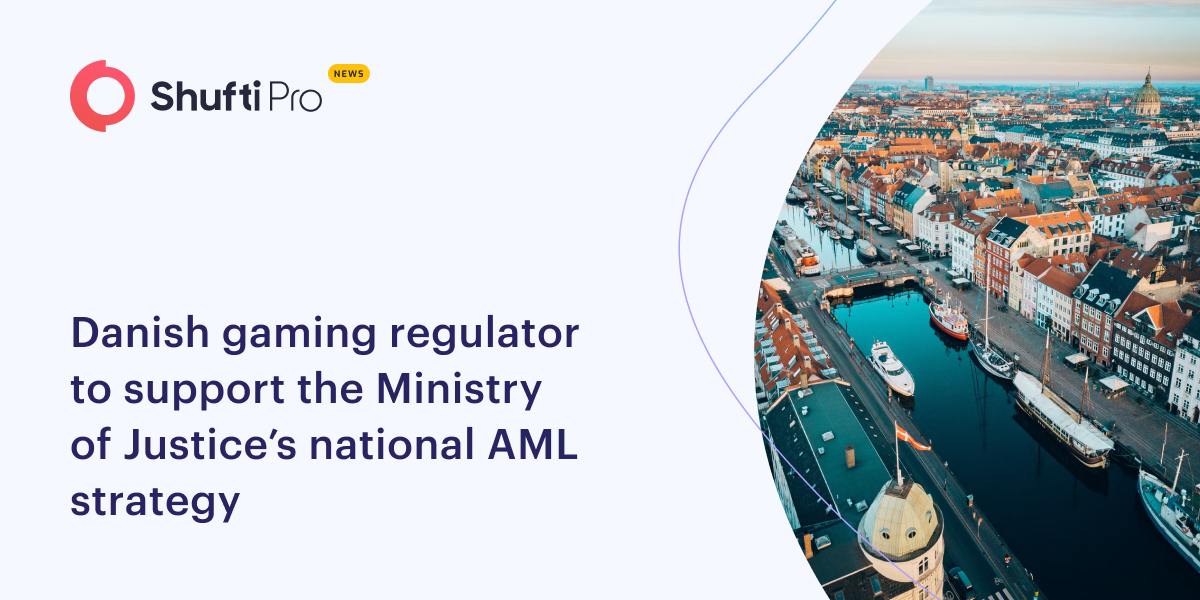 Explore More
Explore More
News
Cambodia Seeks Exit from FATF Grey List in Early 2023
Cambodia has finally invited the Financial Action Task Force (FATF) to evaluate its progress in f...
 Explore More
Explore More
News
COVID at EURO 2020 Reinforced the Need for Digital COVID Pass
With 2 infected players infiltrating the entire stadium, many are fearing the spread of COVID-19 ...
 Explore More
Explore More
News
The UK’s Financial Services Minister States Banks Should Not Close Accounts Based on Political Views of Their Customers
The financial services minister, Andrew Griffith, commented on July 4th that banks should be requ...
 Explore More
Explore More
News
IMF Seeks Tighter Checks on Kenyan Banks Amid Money Laundering Concerns
The International Monetary Fund (IMF) is tightening the checks to prevent money laundering and wa...
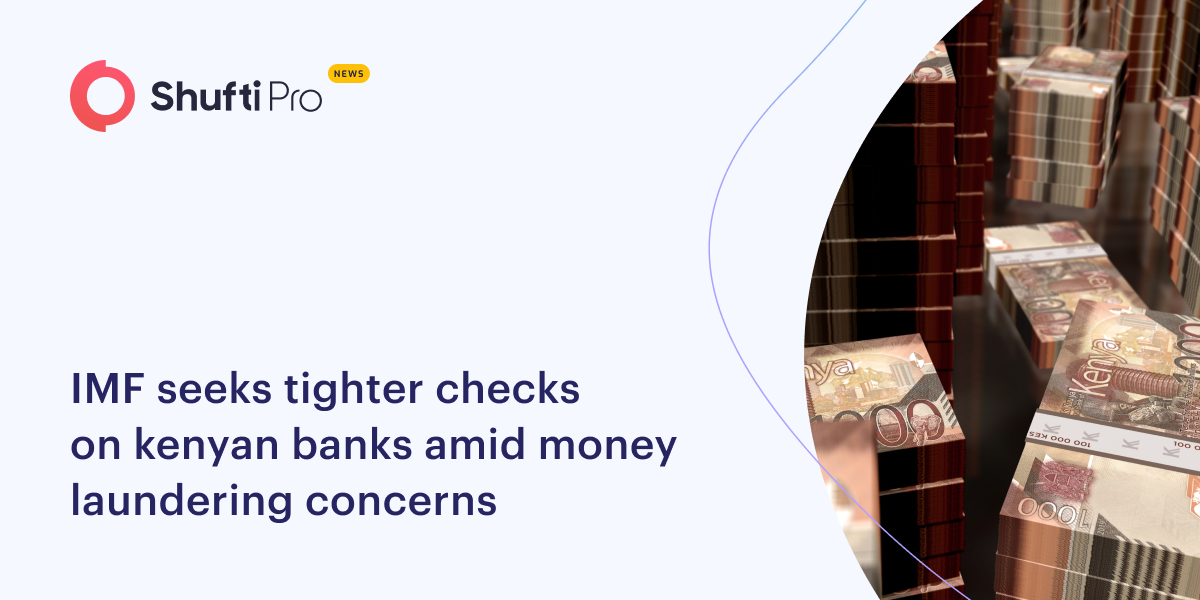 Explore More
Explore More
News
German Law Firm Denies Money Laundering Allegations Against Deutsche ReGas
Hengeler Mueller, a German law firm, investigated the loopholes in the Anti-Money Laundering (AML...
 Explore More
Explore More
News
Israel Enforces New Regulations for the Transfer of Digital Currency
The new digital currency regulations will allow Israeli banks to profit from cryptocurrency tradi...
 Explore More
Explore More
News
Businesses at Risk Due to 6AMLD by the European Union
The European Union imposed the fifth anti-money laundering directive in January 2020, which enhan...
 Explore More
Explore More
News
MAS Ramps Up Efforts Against Financial Crimes With the Help of Data Analytics
Singapore’s central bank has revealed in a report on Wednesday that financial criminals will be p...
 Explore More
Explore More
News
CBR to Restrict Crypto-Related Transactions to Prevent Financial Crime
The Central Bank of Russia is limiting ways for cryptocurrency investments including blocking pay...
 Explore More
Explore More
News
BSP Seeking to Mandate e-KYC For Financial Institutions
The draft circular suggests obligatory e-KYC processes, including identity verification and custo...
 Explore More
Explore More
News
UAE Central Bank Issues AML/CFT Guidance For Exchange Houses
The Central Bank of UAE (CBUAE) has issued guidance for Licensed Exchange Houses (LEH), keeping F...
 Explore More
Explore More
News
IAMAI To Set Up A Board To Ensure Voluntary Compliance With AML & KYC
New Delhi: On Tuesday, June 1st, the Internet and Mobile Association of India (IAMAI), announced ...
 Explore More
Explore More
News
Canada’s Real Estate a Safe Haven for Money Laundering, Confirms Intel
Intel has confirmed the findings of CISC’s report saying that Canadian real estate is a safe have...
 Explore More
Explore More
News
China’s Top Leaders Indicate the Further Tightening of Financial Regulations
Chinese leaders have indicated that the country will move to further strengthening of financial r...
 Explore More
Explore More
News
US Sanctions Russian Crypto Firm Over Ransomware Payments
Suex, a Russian crypto OTC broker, was involved in facilitating ransomware payments and has been ...
 Explore More
Explore More
News
KYC Alliance between Dubai Economy and six banks
As reported by Gulf News, Dubai Economy along with Emirates NBD, Emirates Islamic, HSBC, RAKBANK,...
 Explore More
Explore More
News
US Senator Joe Manchin Introduces Digital Asset Anti-Money Laundering Act to Curb Unauthorised Crypto Flow
US Senator Joe Manchin, along with Senators Roger Marshall, Lindsy Graham, and Elizabeth Warren, ...
 Explore More
Explore More
News
Facial Recognition Market to Grow 12.5% Annually Through 2024
According to a new report by Mordor Intelligence, the facial recognition market is expected to gr...
 Explore More
Explore More
News
IMF Joins Hands with Philippines on Wholesale CBDC Project
IMF has announced the collaboration with BSP (Bangko Sentral ng Pilipinas) for the development of...
 Explore More
Explore More
News
US Shows Conflicts with China at First Financial Meeting
In a recent financial working group meeting, the US Treasury raised disagreements with China, whe...
 Explore More
Explore More
News
Pacific Financial Intelligence Unit Collaborates to Combat Money Laundering
The Financial Intelligence Unit of the Pacific region arranged the meeting last week to enhance t...
 Explore More
Explore More
News
Canada’s Anti-Money Laundering Crackdown Gets Support From Coalition
The Canadian government has swiftly responded to a call for action from an alliance of organizati...
 Explore More
Explore More
News
EU Legislation Bans On-cash Deals Over €10,000 Due to Money Laundering Threats
The European Union’s ban on cash payments over €10,000 for transactions such as car payments is e...
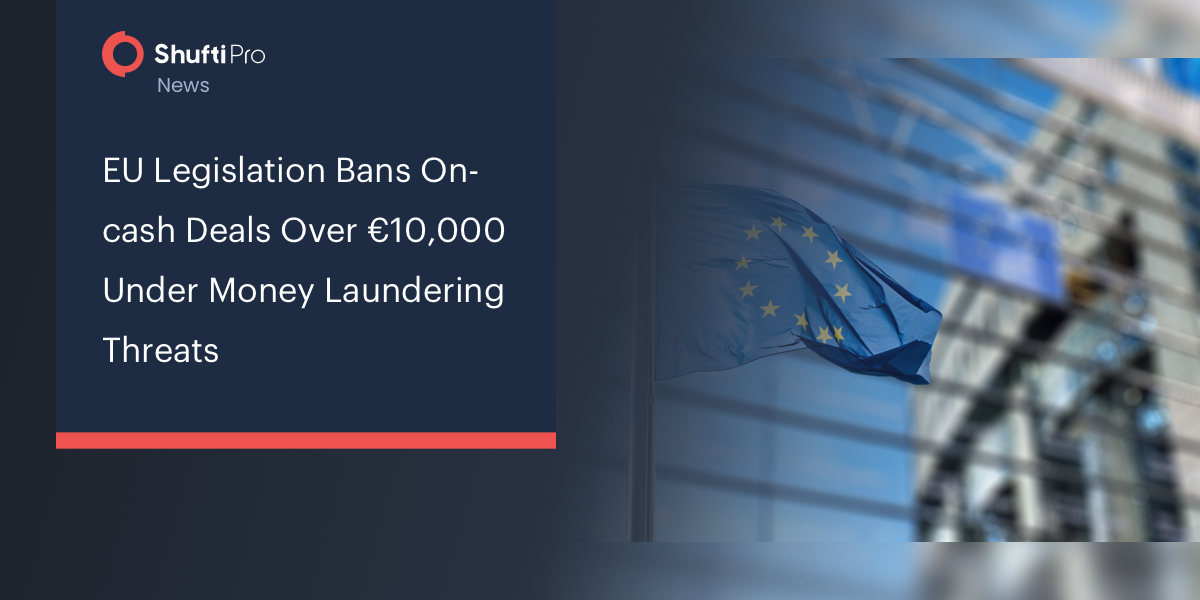 Explore More
Explore More
News
Nigeria’s Senate Passes Bill to Tighten Money Laundering Rules
Nigeria’s Senate has passed a bill that is aimed at improving the country’s money laundering regu...
 Explore More
Explore More
News
Google CEO voices his concerns regarding AI and its potential harmful damages in the future
Sundar Pichai, Google CEO gave a statement on Monday regarding Artificial Intelligence and its in...
 Explore More
Explore More
News
FBI Expands its Corruption Unit to Closely Monitor Illicit Activities
The Federal Bureau of Investigation (FBI) has stepped in, to monitor international corruption by ...
 Explore More
Explore More
News
South Korea’s Largest Crypto Exchange Upbit Registers with KoFIU for AML
Upbit is reportedly the first South Korean crypto exchange to register the Korean Financial Intel...
 Explore More
Explore More
News
UAE’s Economic Integration Committee Highlights Files of Mutual Investigation with FATF
In the latest Economic Integration Committee meeting, the UAE’s financial regulatory authorities ...
 Explore More
Explore More
News
One-third of Finance Firms Have Accelerated Use of AI to Detect Money Laundering
Financial institutions are heavily investing in Artificial Intelligence (AI) and Machine Learning...
 Explore More
Explore More
News
Philippines: Banks Reminded to Closely Monitor and Report Suspicious Transactions
Philippines ramps up efforts to step out of the FATF’s grey list and reminds banks to monitor and...
 Explore More
Explore More
News
Michigan Man Convicted for COVID-19 Relief Fraud
The criminal has been sentenced to 32 months in prison for fraudulently acquiring PPP loans.
On ...
 Explore More
Explore More
News
Chinese Officials to Face Scrutiny Over their Financial Affairs in Hong Kong
Hong Kong’s banks will take extra measures to monitor transactions by Chinese politically connect...
 Explore More
Explore More











































































